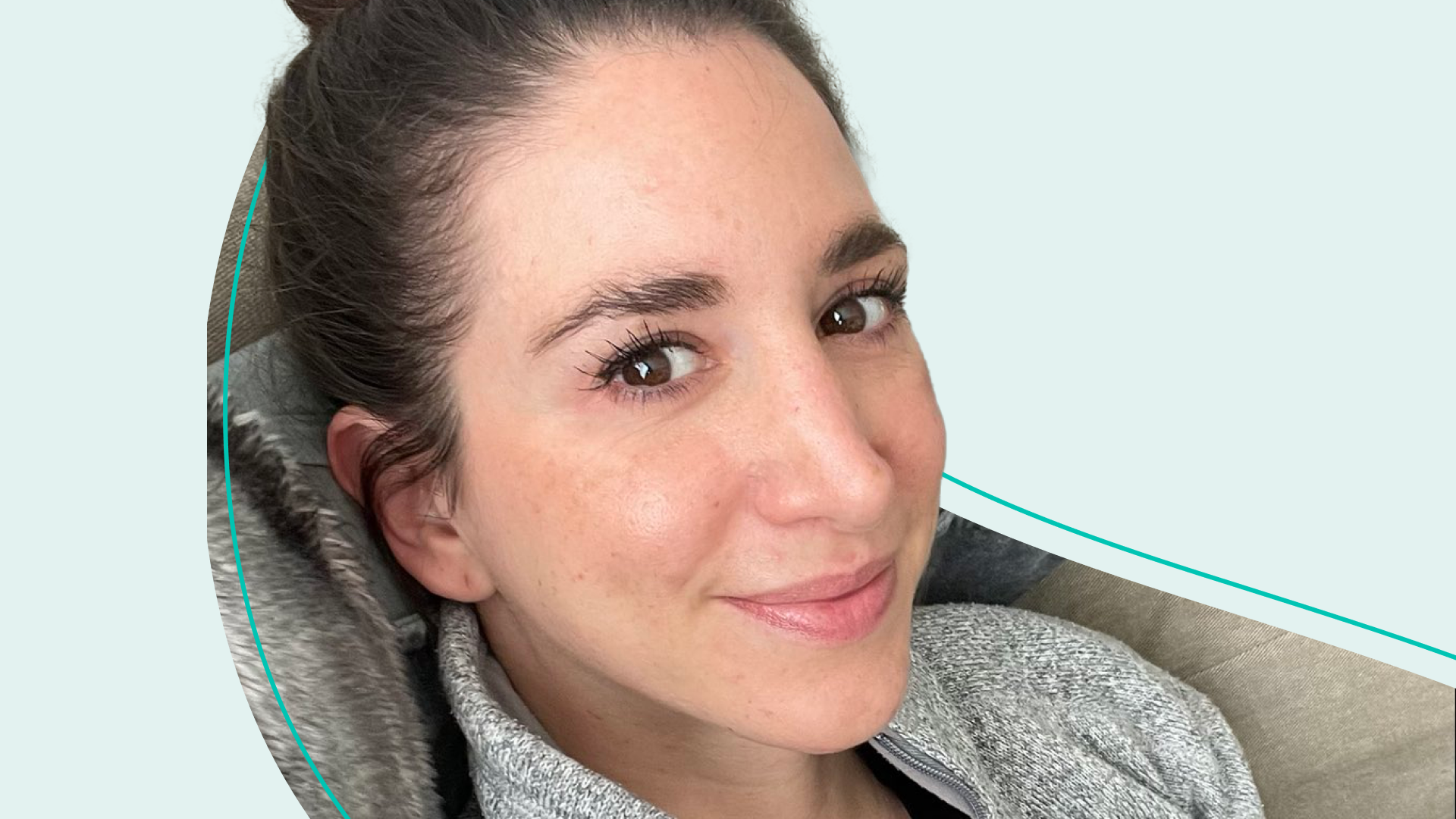Nearly 64% of Americans are fully vaxxed and many are feeling more relaxed about COVID-19 protocols. But if you’re feeling ‘vaxxed and done,’ here’s something to consider: The Omicron variant doesn’t always cause a mild infection. Particularly for the more than half of American adults who have at least one chronic illness.
“Chronic illness doesn't look like one person. It looks like your neighbor, your friend, your coworker,” says Dr. Sarah Bernstein.
That’s the message the neonatologist (aka a doctor who cares for newborns) aimed to send in a recent tweet that went viral. She wrote, “I’m 35 and a doctor. I also have a heart condition that puts me at an increased risk for serious complications from covid. #IHaveAPreexistingCondition. Does the face of #chronicIllness look different than you thought?” It inspired so many other people to post selfies and open up about their own chronic conditions.
We talked to Dr. Bernstein about how the COVID-19 pandemic has impacted her personal and professional life. And how everyone can be a little more mindful of each other’s safety as many people still face COVID-19 risks almost two years into the pandemic.
The following has been edited for length and clarity.
#IHaveAPreexistingCondition became a Twitter trend after you tweeted earlier this month. What inspired you to post?
I kept feeling like there's this disconnect between what I see in my job on a daily basis, and then when people say things like ‘COVID is over’ or ‘COVID is no big deal.’ And that’s not true. I take care of essentially the sickest, smallest, most premature babies. Most of whom, when they leave the NICU [neonatal intensive care unit], have what we would consider preexisting conditions. And I can't tell you the last time I had a call to help with a delivery that didn't have a COVID-positive mother. We have truthfully seen a lot of complications in moms who are otherwise healthy with no other issues. [Read more about pregnancy and COVID-19 here.]
However, I felt conflicted because I can't share my patients' stories. But I can share my own story. And so that's kind of what inspired me. I couldn't sleep one night. I was up thinking about this and I just tweeted, hoping to give a face to people who can’t be ‘over’ COVID.
People will often say things like, “Well, you don't look sick.” Thank you. I manage my chronic condition. But that doesn't eliminate the risk for me.
Why does having a preexisting condition put someone more at risk of getting really sick or dying from COVID-19?
There are certain things that we know are risk factors and associated with more severe COVID. [Think: having high blood pressure or diabetes, or being pregnant.] I have a heart condition called cardiac ablation, which I got after getting mono when I was 15. That puts me more at risk. But that’s different from being immunocompromised. When you're immunocompromised, that basically means that your immune system is not as strong as it could be. And not as able to fight off illness. [Think: having an autoimmune disease, a chronic infection like HIV, or being an organ transplant recipient on immune-suppressing drugs.] So that might mean that even if you get vaccinated and boosted, your body still isn’t protected from COVID-19.
I think a lot of people want to minimize the impact COVID is having by saying, “These are people who would have died, anyway.” But the reality is, when you look at who has preexisting conditions, many of those conditions are things that aren't life-limiting [for people who can manage their conditions]. For example, people should have a normal life expectancy with diabetes.
How has having a preexisting condition impacted your personal life during the pandemic?
I have altered my social circle a little bit. I make a conscious effort to have open conversations with people about what I’m comfortable with. But if people aren’t following CDC recommendations, I’ve had to put boundaries on the relationship. I have gone skiing in the last two years, but I wear a mask indoors and stay 6 feet away from people, even while in line for the lift. Because it’s outside, I consider this fairly low risk. I also traveled last summer post-vaccination and when COVID rates were lower. I tested for COVID pre- and post-travel and then quarantined for 10 days after. But I cancelled trips this winter because of the surge. In general, I avoid really crowded places. Going to a club, concert, or stadium — for me it’s not worth the risk right now.
What message do you hope to send to people who say they’re ‘over’ COVID-19?
If I had a goal for this, it would just be for people to be a little more mindful and ideally a little kinder. And recognize that they may love or know someone who's immunocompromised or who has chronic conditions, and they may not realize it. That might be their coworker or their friend or their cousin who looks healthy. Maybe take a second to be like, “You know, everyone around me looks healthy and fine. But maybe I should wear a mask right now because maybe I'm exposing them or their loved one to something that could be really devastating and life changing for them.” And maybe it's worth the two extra seconds to put on a mask.
Maybe it's worth washing your hands again. Maybe it's worth getting vaccinated. Whatever that choice is, I just hope that people think about those around them a little bit more and realize that — for a lot of people — COVID really isn't over.
This content is for informational and educational purposes only. It does not constitute a medical opinion, medical advice, or diagnosis or treatment of any particular condition.
Subscribe to Skimm Well
Sign up here to receive our wellness newsletter filled with actionable advice, expert-vetted content, product recs, and more — delivered directly to your inbox.
